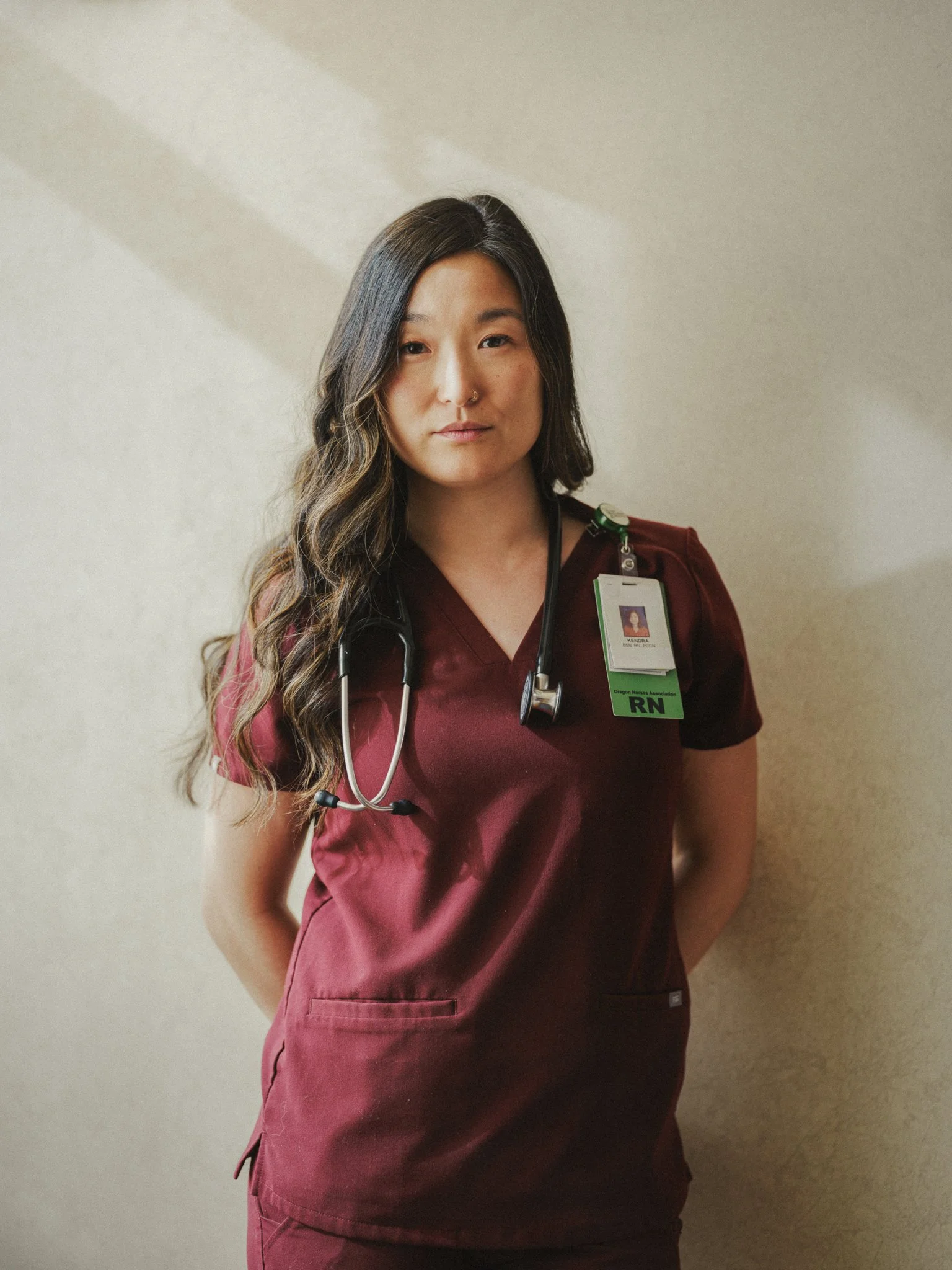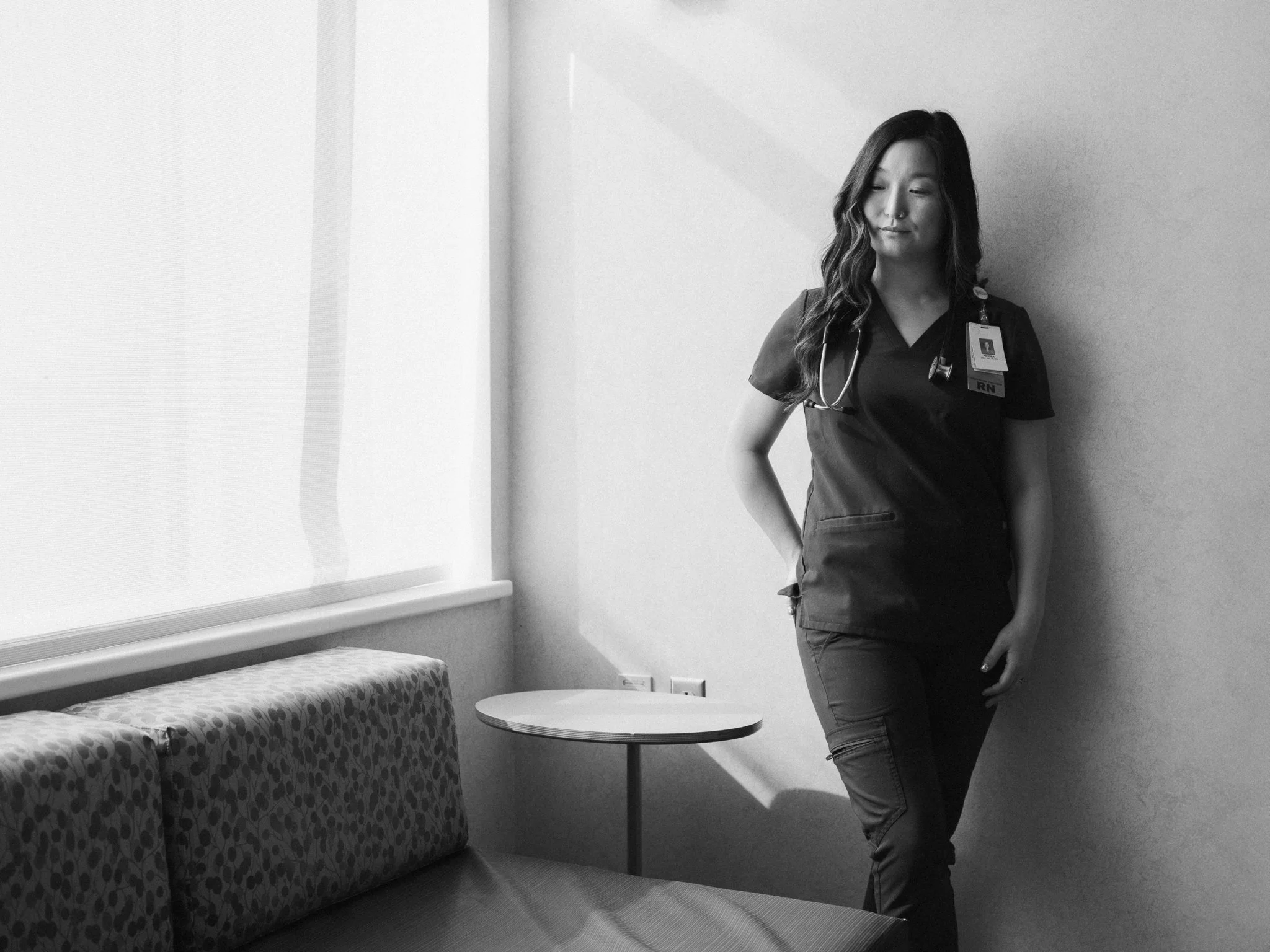Portraits of Oregon - Kendra
I was born in Seoul, South Korea in 1986. I was immediately relinquished by my birth mother into the guardianship of an adoption agency, Holt Korea. For my first few months of life, I was taken care of by a Korean foster family until placed with my adoptive family in the US. I was one of hundreds of thousands of “proxy adoptions” endorsed by both the Korean and US governments at the time which allowed families to adopt quickly and easily without ever having to visit or travel to Korea. I was brought to the US at only 3.5 months old via plane accompanied by an American volunteer traveler. I arrived at the SeaTac airport where my adoptive parents and older sister (also a Korean adoptee, not biologically related) met me for the first time and became the only family I know.
I grew up in Juneau, Alaska, the capital located in the southeast region of the state. Mountain, icefield, and ocean-locked, Juneau can feel safe and comforting but equally stifling and isolated. It’s one of the most beautiful and depressing places I know. My parents both worked as teachers at that time and had made good friends with many other families in town that also had adopted children or babies from other countries, primarily Korea. Growing up with so many other Korean adoptees with white parents like myself gave me a sense of normalcy in our otherwise unique family dynamics. Having each other helped soften the pain of having other kids mock our eye shape or when they would taunt us with racist stereotypes, slurs, or nonsense phrases like “Ching Chong!”
I was a mostly happy and free-spirited kid, at least on the surface, but have always carried a sense of loss, envy, and sadness deep in my soul. Even at a very young age, I always felt deeply fractured due to being adopted and Asian in a predominantly white community. I didn’t view myself as an Asian person. In my mind’s eye, I saw myself as a white person, until I saw myself in the mirror. As a kid I used to wish I would wake up and look like the pretty white girls with blond hair and blue eyes. Body/racial dysmorphia as a transracial adoptee is real and very disconcerting.
I was an overachiever in school, art, and music and developed a need for perfectionism. I also developed the habit of people-pleasing and being at service to others, emotionally and beyond (it’s truly no wonder why I became a nurse). I avoided getting into any type of trouble and only wanted to be seen as good, agreeable, and “wise beyond my years”. Looking back now, I know these characteristics are often results of anxiety, fear of abandonment, and early childhood developmental trauma.
Adoption is trauma. To the general public, the overarching narrative about adoption is usually spun towards only the positive and feel-good aspects. For most adoptees, we are often told by non-adopted people (often including our closest family and friends) that we should be nothing more than grateful, happy, and appreciative. That our lives would have been horrible without having been adopted into a “better life”. I used to naively believe this was the only true narrative to my story, but this narrative doesn’t wholly match how I actually feel inside.
Throughout my 30’s, I’ve “come out of the fog” and am working through all the real and raw emotions, realities, and less than positive narratives and historical contexts that come with being a transracial, transnational adoptee. It requires bouncing around the 5 stages of grief while knowing this deep grief will never fully go away, but learning to embrace the process.
A positive part of coming out of the fog has allowed me to become more open and interested in learning about Korean culture, language, and cuisine. As I’m getting older, my body has started to insatiably crave the flavors and ingredients used in Korean food. I no longer feel embarrassed or ashamed to be Korean, and now claim my ethnicity proudly. I have been able to connect with many other adoptees from all over the world and help build community within our unique diaspora. And I finally overcame my hesitance to go to Korea, and I traveled back for my first time as an adult in 2023 where I serendipitously met my life partner, who is also a Korean adoptee.
But coming out of the fog has also resulted in me discovering my birth mother died when I was only 13 years old, and realizing I was decades too late in ever finding her, knowing I will never know her or any biological family at this rate, nor the reason for her death. It’s realizing I lost the opportunity to be raised in the culture, language, and cuisine of the people I am genetically connected to. It’s realizing that I will never be “Korean enough” and will always be “other’d” as a non-white American, and as a result I will always carry a sense of not belonging anywhere.
It’s realizing I will always be simultaneously grateful and resentful for the rest of my life, but that I owe it to myself to find peace in this fact.







